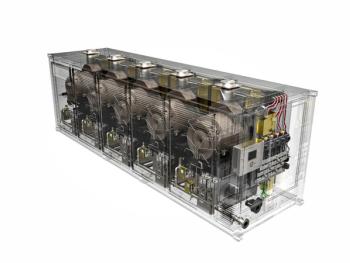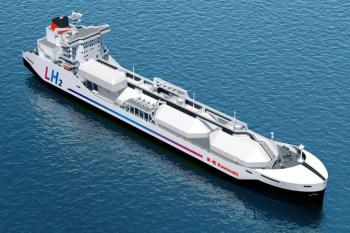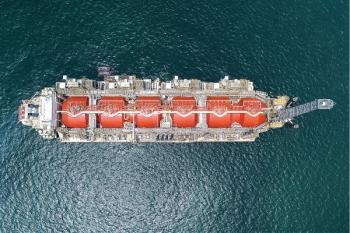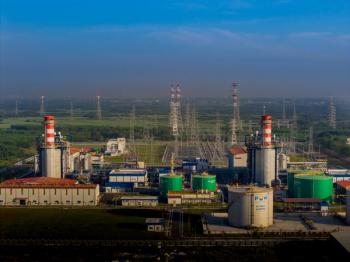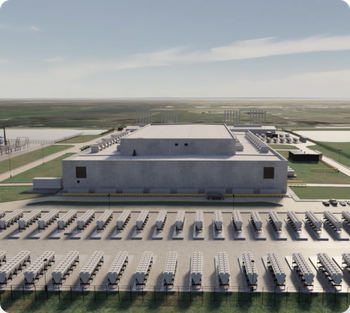
- May/June 2021
Turbomachinery components & auxiliary systems loom large
For many component and auxiliary system vendors, 2020 was a rough year. Operators deferred maintenance and upgrades. 2021 has a rosier outlook.
If only we could plug power lines directly into gas turbines, our energy problems would be far less numerous. The guts of the plants that electrify the world are necessary for a safe and reliable power supply. They are just as integral as the turbomachinery that lies at the heart of the plant. A vast army of component and auxiliary system manufacturers supply the sector with everything from seals, joints, and filters to software and sensors.
Turbomachinery International Magazine interviewed many of these vendors about trends in the industry as well as the new products and services they’re developing. For many, 2020 was a rough year. Energy consumption dropped and budgets were suspended, leaving plant operators with little choice but to defer maintenance and upgrades. But 2021 has a much rosier outlook. Sidelined projects have been revived. Spare parts are in higher demand. The move towards carbon reduction is being served by component manufacturers via better filtration and tighter seals. With remote monitoring becoming the norm, the market for software and sensors has strengthened.
Calnetix
Calnetix manufactures high-speed permanent magnet motor generators, magnetic bearings systems, and power electronics. The company is particularly attuned to the industry shift towards the electrification of drive systems for sustainability.
It is seeing higher demand for integrated machinery in applications such as air separation, offshore source gas compressors, gas processing companders, gas storage compressor and expanders, compressed air energy storage, supercritical CO2-based waste heat recovery equipment, and hydrogen compressors and expanders. Integrated high-speed machines add value but have higher costs. For example, hermetically sealing a high-speed compressor requires redundant seals and sealing controls. But integrated machines offer a minimum of a 1% to 2% efficiency gain, and the cost of deployment (equipment, installation, commissioning, and field work) is lower.
Calnetix has created a subsidiary, Sapphire Technologies, to focus on auxiliary expander systems. That unit developed FreeSpin In-line Turboexpander (FIT) systems that use magnets in a hermetically sealed system to capture the energy lost in pressure reduction from natural gas and hydrogen applications.
FIT produces electricity by extracting energy from gas pressure let down processes. High-pressure gas flows into the FIT and expands through the radial turbine wheel. The expansion energy is converted to rotational energy, which drives the shaft coupled to the permanent magnet generator. All rotating components are levitated by the active magnetic bearing system, providing frictionless operation. The generator produces electricity and transfers it to the variable speed drive (VSD), where the frequency and voltage are regulated to match the local grid. After expansion, the gas exits the FIT with the same conditions as the existing downstream gas network.
CDI Energy Products
CDI Energy Products manufactures polymer products and components for the oil & gas, LNG, fluid handling, aerospace, power generation, refining & petrochemical, and industrial processing industries. It produces materials such as elastomers, fluoropolymers, and thermoplastics.
2020 brought a rethink in operational planning, plant footprint, and traditional office structure. This included the relocation of manufacturing equipment.
The company sees 2021 through a much more optimistic lens. It has several products and materials in the research and development phase. It is about to launch something for the well service packing market and hydraulic fracturing industry as part of its Tuff Breed line. It addresses a major pain point service providers face with frac pump efficiency and fluid end failure.
One of the materials in the company’s dures brand was recognized in the API 610 Twelfth Edition for stationary wear or rotating parts applications selection. The proprietary thermoplastic polymer composite used in dures 200 was developed to service applications with aggressive acids and bases, aromatics, and amines. The dures brand also includes the A451 and XPC2, both of which were recognized as meeting API 610 standards for stationary wear or rotating parts applications. Items produced with dures include case and stationary wear rings, impeller and rotating wear rings, throat or stuffing box bushings, and bowl bushings.
Donaldson Filtration
Donaldson, a manufacturer of inlet filtration systems, has seen plant operators take a greater interest in increasing plant optimization as well as steps toward cleaner energy production. That includes increased use of filter pulsing systems, upgrading to (H)EPA-level final filtration, and increasing power output. The company also reports greater interest in remote equipment monitoring.
The company offers a range of products and services, including Turbo-Tek (H)EPA filters (that capture more than 99.5% of the most penetrating particle size particles), evaporative cooler replacements, pulse system upgrades, and remote monitoring. Its iCue connected filtration service, for example, remotely monitors air intake performance. It measures filter differential pressure (dP), static pressure, temperature, and relative humidity to help minimize unplanned downtime, support efficient maintenance and operation, and capture critical compliance data. This technology can be helpful in coastal regions or other areas where the weather and temperature along with plant processes can produce particulates that are tough on filters and can wear down equipment.
Fluid Energy Controls
Fluid Energy Controls (FEC) is a manufacturer of custom accumulators, and a distributor of fluid power products offering pumps, motors, valves, filters, cylinders, accumulators, and other hydraulic components. Joe Cheema, General Manager at FEC, said he noticed a slowdown during the first five to six months of the pandemic, and watched anxiously as a few suppliers closed shop. But the company is now much busier than it has been over the past year. Little adjustment was needed at FEC other than reducing the number of people working in the building at the same time.
FEC has been offering variations of current products. The company represents manufacturers such as Parker, Rexroth, Rineer, Denison, Muncie, Barksdale, Ausco, Fairfield, and others. Its main product is the LOSA accumulator, a specialty accumulator customized for applications for turbo-compressor, turbo-expanders, and emergency lube oil storage for high speed bearings in turbines.
“Turbomachinery is coming back strong, especially U.S. manufactured products being shipped for overseas projects,” said Joe Cheema. “Spare parts are in bigger demand because stalled repairs are now going ahead.”
Schock Manufacturing
Schock Manufacturing specializes in the engineering and manufacturing of auxiliary equipment for gas turbines used in power generation, oil and gas, and industrial applications. With limited in-person inspections during 2020, the company experienced a rush of orders once units started coming off-line for scheduled outages. It has adjusted stock material levels to support emergency upgrades.
Schock’s newest development is an Exhaust Diffuser Liner upgrade and exterior trough expansion joint for GE FS7F series gas turbines. The diffuser liner requires no maintenance and can be quickly installed.
“With the ageing installed base, and the more frequent cycling of GTs, the aftermarket upgrade segment is strong,” said Jeff Cozbey, Project Manager at Schock.
Voith Turbo
Voith Turbo offers drive solutions and systems for industries such as oil and gas, energy, mining and metal processing, mechanical engineering, ship technology, and rail. Valentin Chocano, Retrofit Expert at Voith, foresees the near future of the industry to be the Internet-of-Things (IoT). Voith has invested heavily in the digital transformation of its product portfolio. This requires changes in engineering, manufacturing processes, supply chain, sales, technical support, and services to support new IoT products.
Errors, failures, and mistakes caused by manual processes, he said, can be eliminated through smart process automation (SPA) with the help of IoT devices and sensors. Smart retrofitting is one opportunity Chocano identified in brownfield areas to increase productivity. During a standard overhaul of a production machine, the analog instrumentation can be replaced by smart instrumentation, including advanced visualization.
“If a company wants to be competitive in future, it needs IoT solutions,” said Valentin Marcos Chocano Enriquez, Retrofit Expert at Voith.
In the summer of 2020, Voith introduced its new digital measurement system called “OnCare.Health IOLIS” for variable speed fluid couplings. The reliability of an existing centrifugal pump, controlled by a Voith VSD-like S-coupling, can be improved by upgrading the existing analog instrumentation with the IOLIS system. Current status of pressure, temperature, vibration, speed, and other paraments is transmitted digitally via the fieldbus to the Distributed Control System (DCS). The visualization of relevant and necessary technical evaluations and diagnostics can be displayed remotely on any device within the operating network.
Waukesha Bearings
Waukesha Bearings, a division of Dover Precision Components, designs and manufactures hydrodynamic fluid film bearings, active magnetic bearing systems and seals for high-performing turbomachinery and rotating equipment in oil & gas, power generation, marine, and industrial markets. In response to market disruptions, the company is deploying remote assistance tools to provide customers with real-time insight on engineering drawings and support for field operations without safety concerns or costs of travel.
“The trend toward decarbonization accelerated during 2020,” said Brian Draeger, Director of Sales, Waukesha Bearings.
In 2020, the company moved into a new innovation lab in Houston. The lab is being used to improve bearing performance, develop materials for harsher environments, and test new seal and damper designs. Polymer bearing technology, for example, is growing in importance in high-load applications like gas and steam turbines, as well as wind turbines. Polymer-lined bearings offer predictable performance and other benefits over babbitt-lined bearings, such as greater strength, higher operating temperatures, and superior tribology properties at start-up. Company engineers have been collaborating on field analysis of polymer-lined tilt pad bearing performance and validating monitoring techniques to increase confidence in the technology. ■
Articles in this issue
over 4 years ago
Piping and Nozzle Loadsover 4 years ago
Bearings and stabilityover 4 years ago
Options for Modernizing Steam Turbinesover 4 years ago
Myth: Additive Manufacturing is the Answer for Everythingover 4 years ago
Turboexpander reliability has increased steadily over timeover 4 years ago
Vendor spotlight: Elliott Groupover 4 years ago
The effect of eddy grooves on tilting pad journal bearingsover 4 years ago
Fog system upgradesover 4 years ago
Turboexpander reliability has increased steadily over the yearsNewsletter
Power your knowledge with the latest in turbine technology, engineering advances, and energy solutions—subscribe to Turbomachinery International today.

